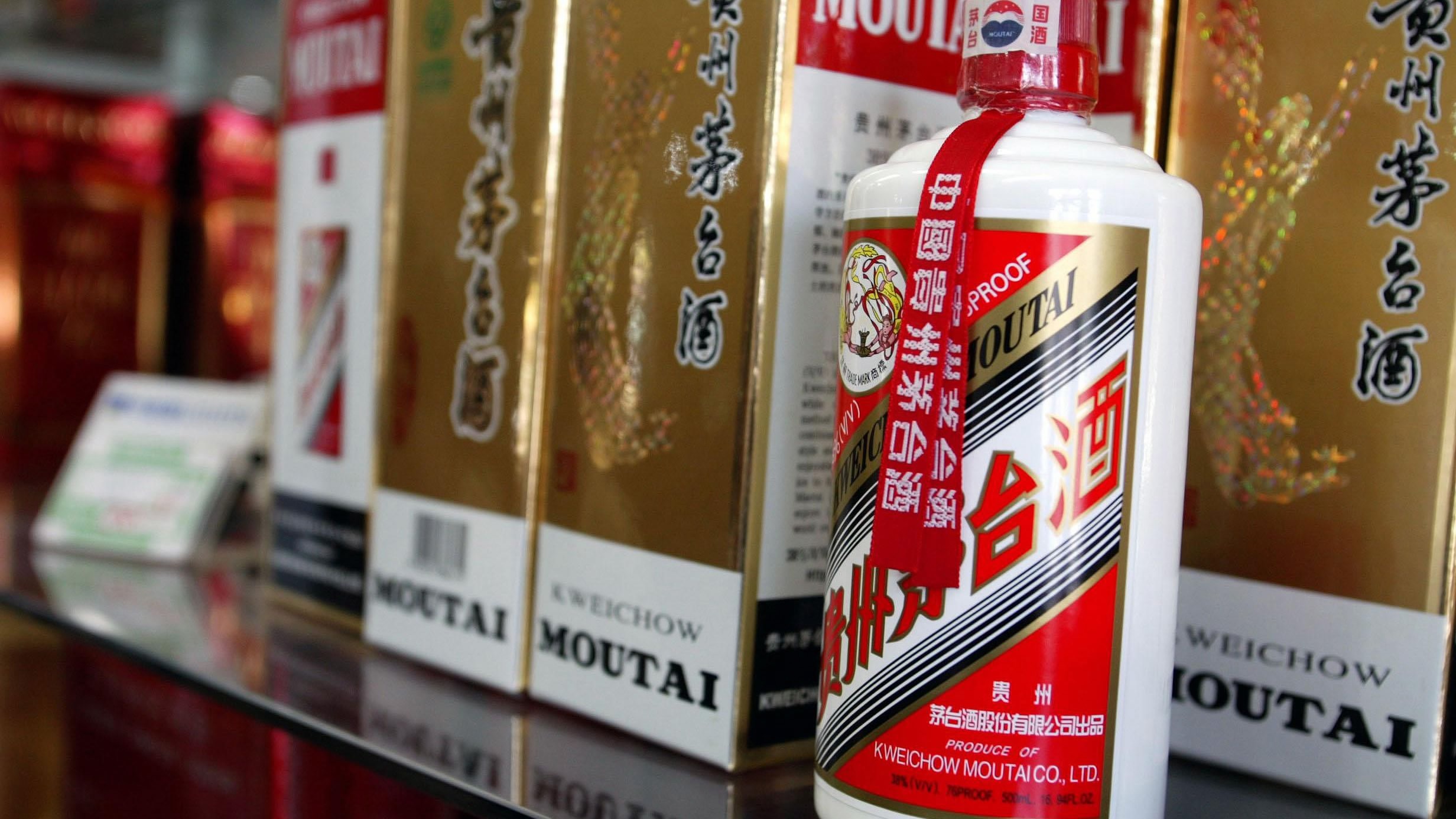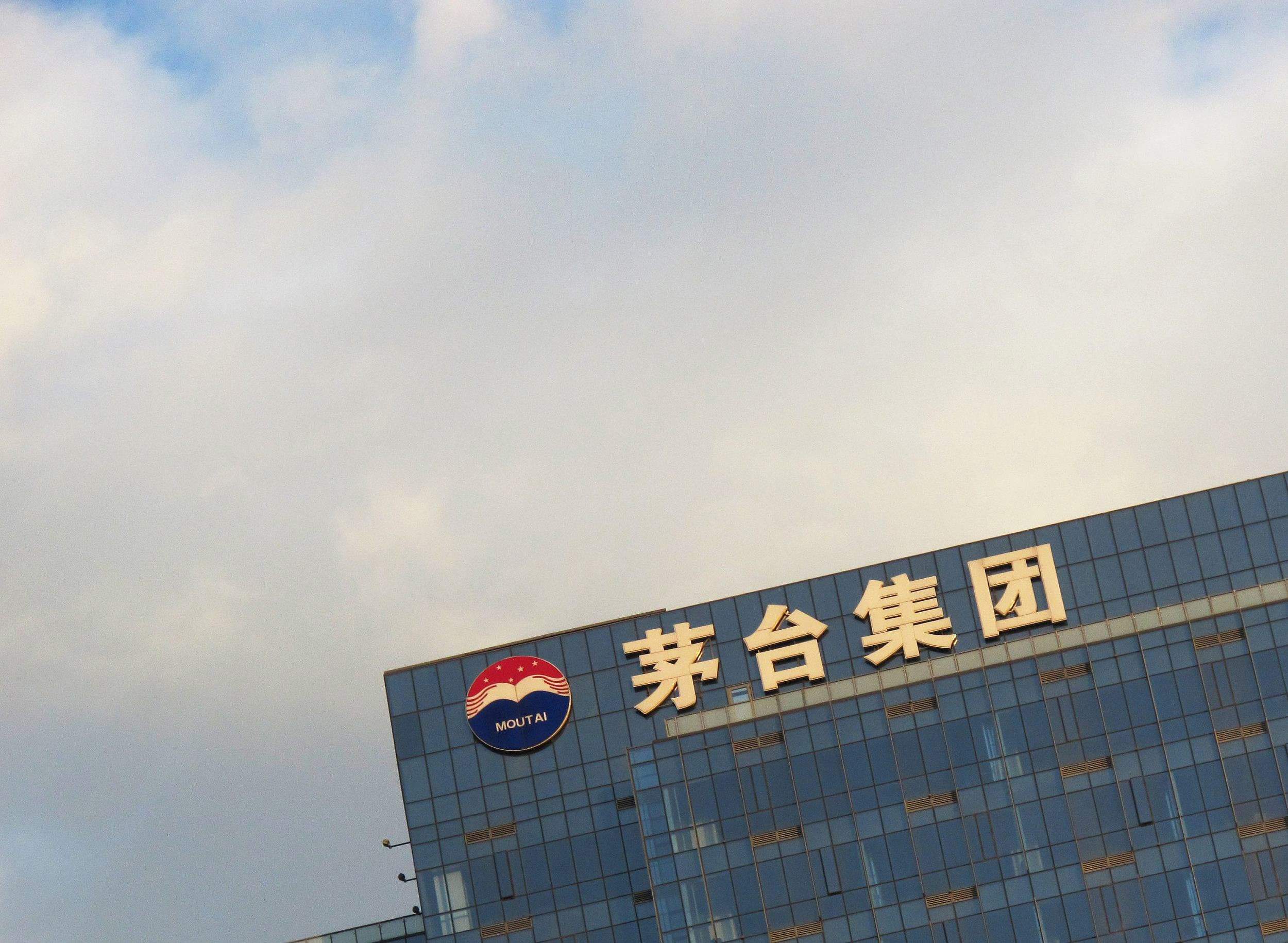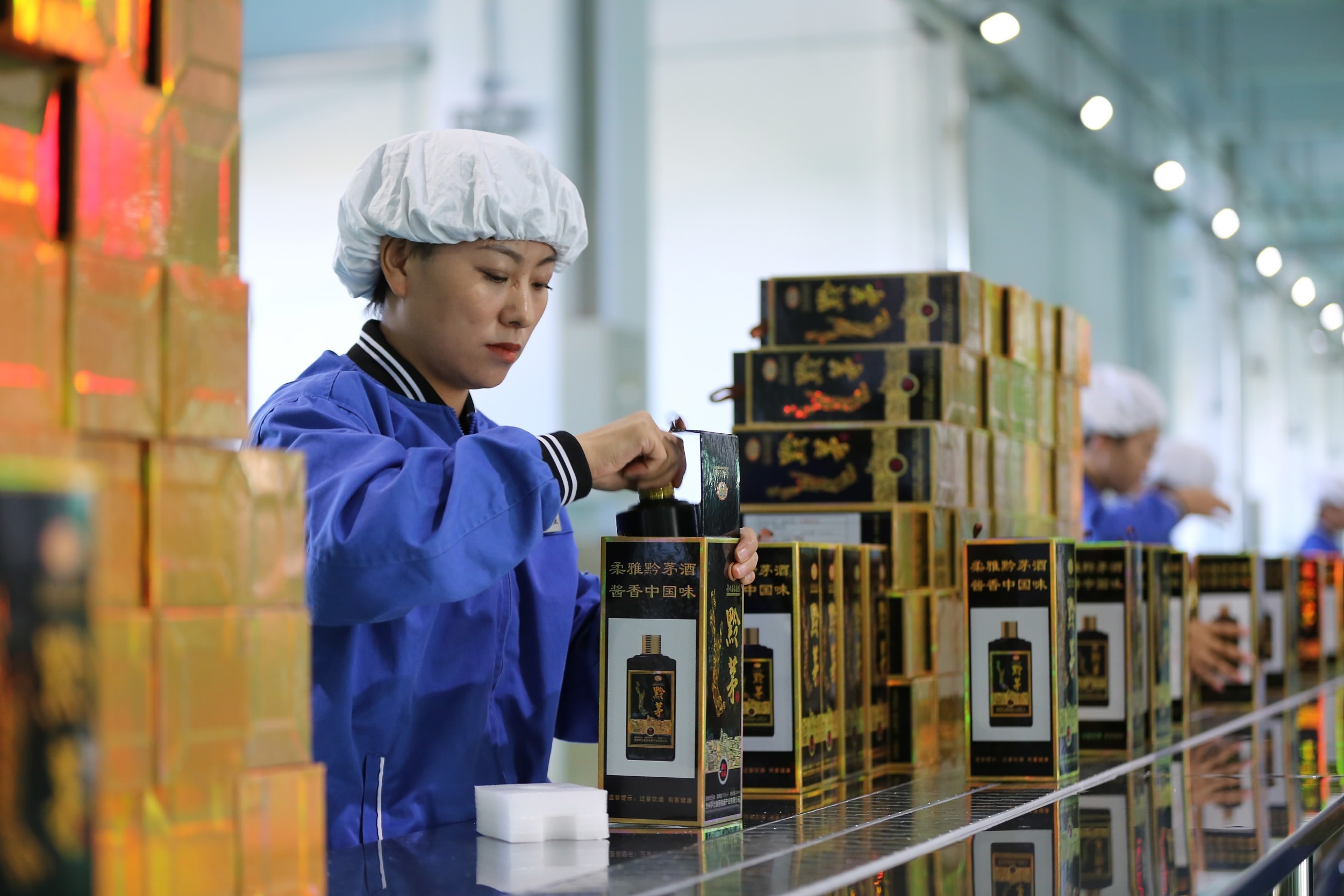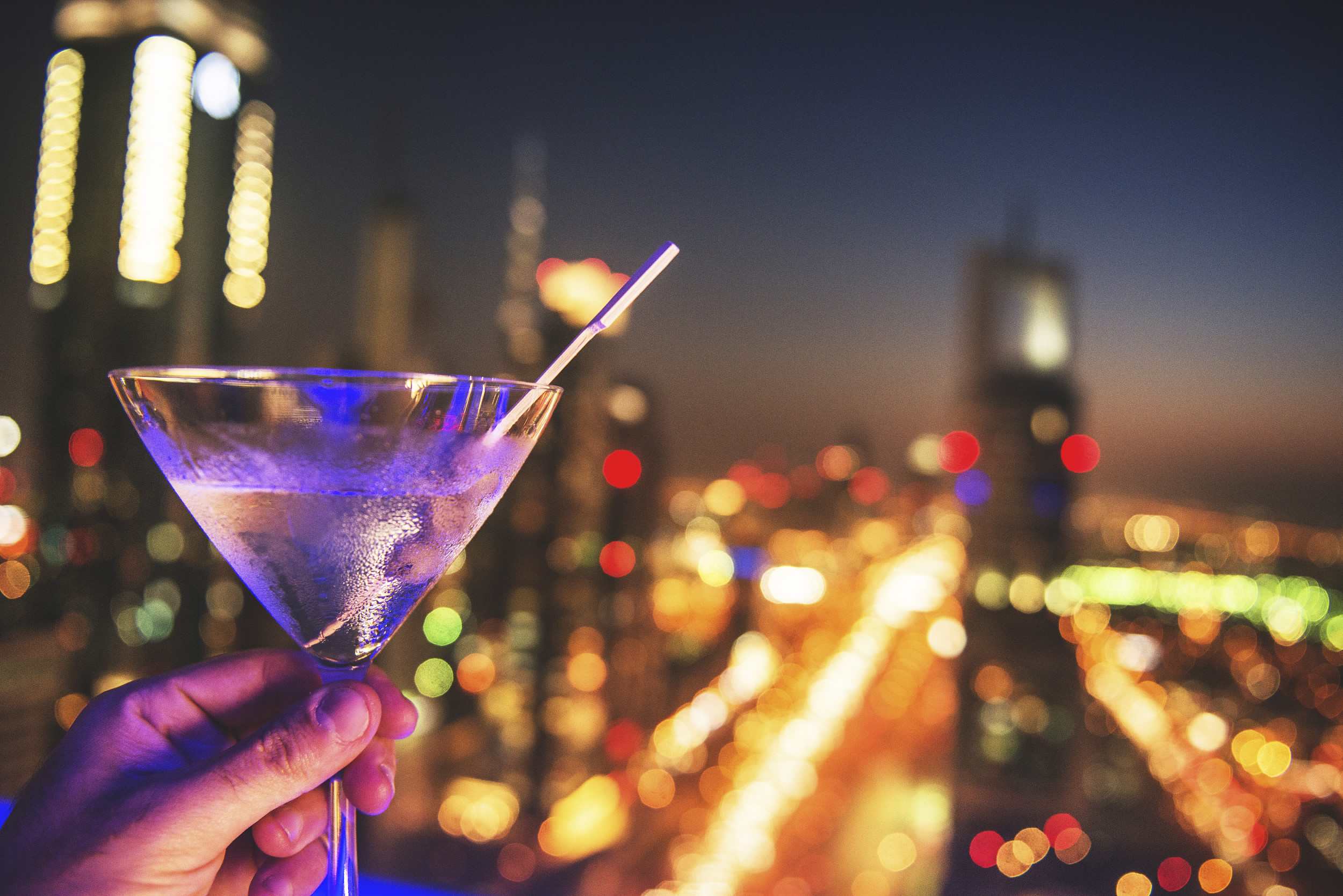
Business
16:59, 10-Oct-2017
Baijiu boom: Moutai shares hit dizzy new heights amid global expansion
by Nicholas Moore

Kweichow Moutai, arguably China’s most recognizable alcohol brand, saw its share price hit an all-time high on Tuesday after rising 80 percent since October 2016. The world’s largest liquor company, Moutai still remains relatively unknown in the West despite having a reported market capitalization in excess of 100 billion US dollars – but can its fiery spirit set the world alight?
Walk through the central business district of any major Chinese city, and you’ll likely see the Moutai logo in neon lights on top of a high-rise building. While baijiu remains a niche product overseas, it has forged a huge domestic market despite potential barriers like the recent anti-corruption campaign and changing drinking habits.

Kweichow Moutai's name and logo on top of a high-rise building in Beijing. /VCG Photo
Kweichow Moutai's name and logo on top of a high-rise building in Beijing. /VCG Photo
Moutai's liquor – distilled in southwest China’s Guizhou Province since the Qing Dynasty – overtook Diageo (owner of brands like Smirnoff, Johnnie Walker and Guinness) to become the world’s biggest alcohol company earlier this year. On Tuesday, Kweichow Moutai had a reported market capitalization of 676.68 billion yuan (102.56 billion US dollars), after shares soared to an all-time peak of 540.19 yuan as markets closed.
Progressive, historic
Kweichow Moutai Group, despite its history, has shown that it is a progressive company not afraid to move with the times. It announced in September that the number of brands operating under the Moutai name would fall from 214 to 59, to prevent poor quality liquor from staining the original spirit’s reputation and to stop overuse of the Moutai brand in advertising.

A Kweichow Moutai factory line in Tieling, Liaoning Province, northeast China, September 21, 2017. /VCG Photo
A Kweichow Moutai factory line in Tieling, Liaoning Province, northeast China, September 21, 2017. /VCG Photo
Moutai was the drink that Chairman Mao used to toast US President Nixon in his groundbreaking 1972 visit to China, and the history, prestige and quality of this aromatic drink means bottles of vintage Moutai can fetch millions of yuan at auction. A one liter bottle of the classic Moutai Feitian version of the drink sells for 3,500 yuan (530 US dollars) online, eclipsing prices for some of the world’s finest and most renowned whisky and cognac brands.
‘An exciting moment for our baijiu market’
While Moutai is clearly a domestic success story, is there scope for expansion overseas? Jenny Chiu, Moutai business manager of Evershine Trading Australia - the spirit's exclusive distributor in Australia and New Zealand - told CGTN that the brand has grown rapidly overseas in recent years, saying “it is an exciting moment for our baijiu market.”
That growth can be put down to changes in the customers buying Moutai, with Chiu saying that while the market is still dominated by local and overseas Chinese males aged 30-50, “local Australians, businesses with Asia links and western restaurants and bars” are leading a demographic shift, with an “increasing demand” from females and young customers (aged 25-40) suggesting baijiu could be the next big trend in Australia’s bars and restaurants.

Baijiu - the next cocktail craze? /VCG Photo
Baijiu - the next cocktail craze? /VCG Photo
“After the craze for sake and whisky, what’s next?” says Chiu, who agrees that Moutai is becoming a drink of choice for hipsters, citing “unprecedented inquiries” for the 2017 Australia Moutai Cocktail Competition.
According to Chiu, Moutai is becoming more visible in Australian bars and restaurants, but because of limited supply overseas, many other bars and restaurants keep it “off menu,” only offering it “to connoisseurs who know and ask for it.”
‘Ambitious and unprecedented’
Liu Yuan of CNS Imports – the oldest and largest supplier of baijiu to the US – agrees that Moutai “will surely become a well-known premium liquor brand around the world.”
Liu told CGTN that the brand has been “making consistent efforts” to go beyond Chinese liquor’s “traditional customer base in foreign markets,” a move that he calls “ambitious and unprecedented in the baijiu market.”
Moutai’s impressive expansion both at home and abroad is set to continue according to Morgan Stanley, which surprisingly points to driverless vehicles as a potential spark for the global liquor industry which, its recent report argues, has been affected by stringent rules on drink driving.
The report, titled “Shared autonomous mobility: The solution to drinking and driving?” says Kweichow Moutai is one of the “best positioned” liquor companies to benefit from driverless technology, which could “add 80 basis points of annual revenue growth to the industry's sales for the next 10 years.”
The report even suggests that future widespread adoption of driverless and autonomous vehicles means “more opportunities to drink before getting in the car… [And] more opportunities to drink while in the car.”
Whether or not Americans and Australians will be toasting each other with glasses of baijiu in driverless vehicles in the near future remains to be seen, but as Liu Yuan told CGTN, “Moutai is in a unique position” as it looks to reach the next level of its overseas expansion strategy.

SITEMAP
Copyright © 2018 CGTN. Beijing ICP prepared NO.16065310-3
Copyright © 2018 CGTN. Beijing ICP prepared NO.16065310-3